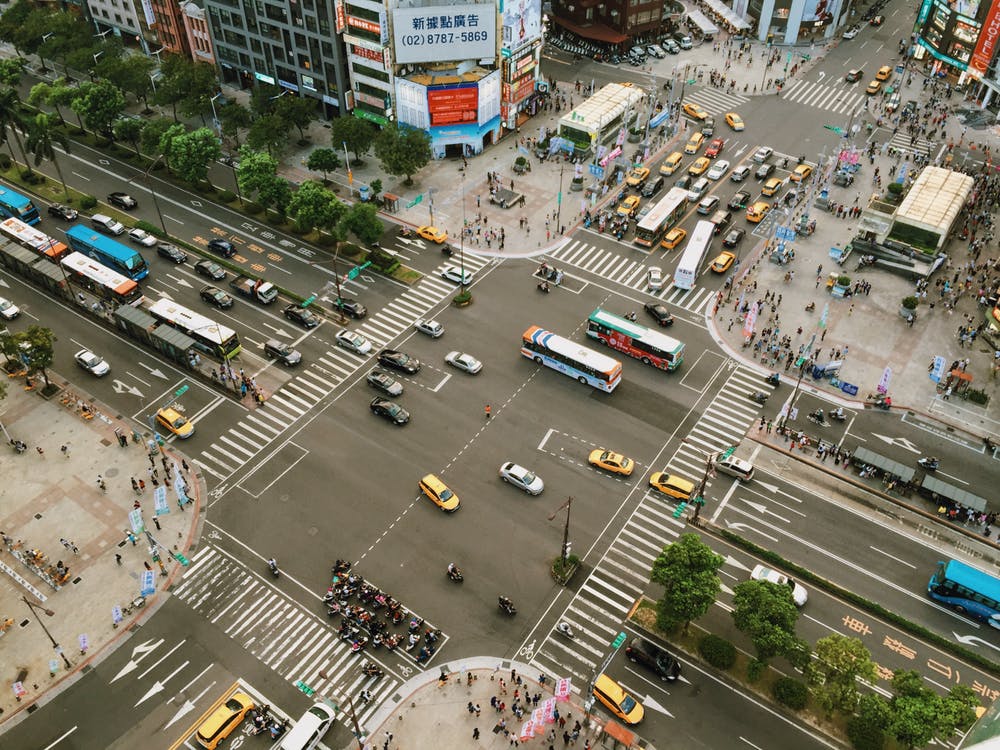The Chinese government’s plans to liberalize foreign automakers in the country were reported by Bloomberg. The publication referred to a document of the Commission on National Development and Reforms. It is stated that the government "in an organized manner will remove restrictions on ownership interests in joint ventures". Currently, foreign companies, including the automotive sector, can own not more than 50% of a joint venture with a local Chinese manufacturer. Thus, foreigners could localize production, and local companies gained experience necessary in the production of cars. In recent years, however, many Chinese automakers have not only become a skilled hand, but have also launched their own international expansion into many emerging markets.
In China itself, the share of foreign automotive brands in relation to the Chinese is steadily declining. Chinese Association of Automobile Manufacturers believes that Chinese brands are already accounting for 43% of the country's total car market in 2017, while the share was 41% a year earlier. The second place is taken by German brands - 20%, followed by Japanese brands - 16%, American - 12%, South Korean - 5% and French - 2%. At that, Western brands once in a while accuse their Chinese counterparts of copying technology or design. Among the latest scandals was charges from Jaguar Land Rover company, which in June last year sued Chinese company Landwind over a crossover Landwind X7, similar to the well-known model Range Rover Evoque. Nevertheless, the rate of development of numerous Chinese manufacturers cannot but impress. Geely Group alone sold 1.6 million cars around the world last year, and Great Wall - 1.1 million. Apparently, the authorities decided that the Chinese automobile industry is ready for more severe competition with Western companies in its market.
Exact schedule of reforms to liberalize the car industry has not been revealed yet, but it is known that the Commission on National Development and Reforms intends to craft a detailed plan before 2025. After these reports, shares of many Chinese manufacturers working in the joint venture with foreigners, increased in price. Brilliance China Automotive Holding, working with BMW, went up by 3.7%; Dongfeng Motor, working with Honda, Nissan, Renault and Kia, - by 1.8%. According to analysts, investors are waiting for Chinese companies to profitably sell their shares in JV to foreign partners. Foreign companies can also benefit from the liberalization of legislation, as they will be given leeway to act more effectively. "Every step in the direction of liberalizing the Chinese economy is a positive signal", Bloomberg quotes Volkswagen's position on the possible easing of restrictions.
Meanwhile, total number of registered cars in China reached 200 million units, says a message of the Ministry of Public Security of the PRC. At the same time, the total number of motor vehicles in the country reached 300 million units.
In addition, the total number of owners of registered vehicles, including motorcycles, has reached 364 million people. Of these, car drivers make up 320 million people.
At the same time, China remains the largest market for many automobile brands. In 2016, the country was also the world's largest market for sales of cars and light commercial vehicles. The Chinese vendors sold record 27 million 951 thousand cars in the last year (+ 12.3%).
source: bloomberg.com
In China itself, the share of foreign automotive brands in relation to the Chinese is steadily declining. Chinese Association of Automobile Manufacturers believes that Chinese brands are already accounting for 43% of the country's total car market in 2017, while the share was 41% a year earlier. The second place is taken by German brands - 20%, followed by Japanese brands - 16%, American - 12%, South Korean - 5% and French - 2%. At that, Western brands once in a while accuse their Chinese counterparts of copying technology or design. Among the latest scandals was charges from Jaguar Land Rover company, which in June last year sued Chinese company Landwind over a crossover Landwind X7, similar to the well-known model Range Rover Evoque. Nevertheless, the rate of development of numerous Chinese manufacturers cannot but impress. Geely Group alone sold 1.6 million cars around the world last year, and Great Wall - 1.1 million. Apparently, the authorities decided that the Chinese automobile industry is ready for more severe competition with Western companies in its market.
Exact schedule of reforms to liberalize the car industry has not been revealed yet, but it is known that the Commission on National Development and Reforms intends to craft a detailed plan before 2025. After these reports, shares of many Chinese manufacturers working in the joint venture with foreigners, increased in price. Brilliance China Automotive Holding, working with BMW, went up by 3.7%; Dongfeng Motor, working with Honda, Nissan, Renault and Kia, - by 1.8%. According to analysts, investors are waiting for Chinese companies to profitably sell their shares in JV to foreign partners. Foreign companies can also benefit from the liberalization of legislation, as they will be given leeway to act more effectively. "Every step in the direction of liberalizing the Chinese economy is a positive signal", Bloomberg quotes Volkswagen's position on the possible easing of restrictions.
Meanwhile, total number of registered cars in China reached 200 million units, says a message of the Ministry of Public Security of the PRC. At the same time, the total number of motor vehicles in the country reached 300 million units.
In addition, the total number of owners of registered vehicles, including motorcycles, has reached 364 million people. Of these, car drivers make up 320 million people.
At the same time, China remains the largest market for many automobile brands. In 2016, the country was also the world's largest market for sales of cars and light commercial vehicles. The Chinese vendors sold record 27 million 951 thousand cars in the last year (+ 12.3%).
source: bloomberg.com



















